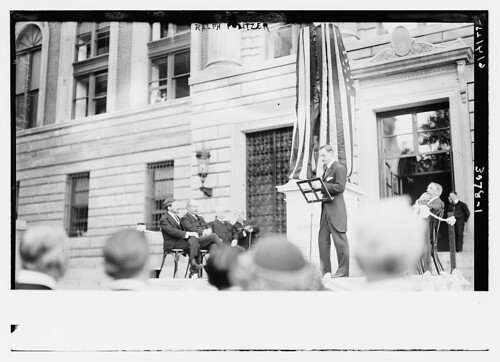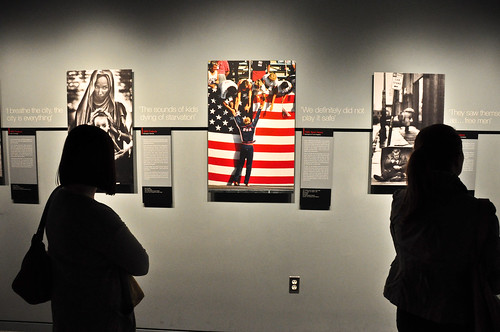
‘Ralph Pulitzer (LOC)’
courtesy of ‘The Library of Congress’
Monday’s announcement of the Pulitzer prize winners yielded a few wins for our area, both in worker and subject matter. The Pulitzer is a prize awarded by Columbia University at the recommendation of the Pulitzer Prize Board, a group of people who work in the journalism field or in education. This year’s board includes Eugene Robinson of the Washington Post, for example. While most of us associate it primarily with journalism there’s also categories covering the arts.
I’m sure they’re going to bar me from the National Press Club for saying so, but the Pulitzer process bears some resemblance to the Academy Awards. While the announcements always include mention of the “nominees,” the reality is that the actual nomination process is no guarantee at all of quality – it’s largely self- or organization-driven. In theory a nomination can even come from “readers or an interested individual.” No statistics are provided on the matter but you have to know there’s some journalist’s mom sending in a sheaf of their clippings every single year. My money is on Ezra Klein. If you’re interested in how the process works you can look at this year’s submission guidance.
Our area had some winners and losers – though making it to the final stage is a form of “losing” that I could surely live with – and I’ve gathered up some links and information for you.

‘Stewpendust #104’
courtesy of ‘Chris Rief aka Spodie Odie’
The people that the organization calls “nominees” are more accurately “finalists.” Just like on Oscars night, the list you hear read doesn’t reflect all the people and works that were submitted for consideration by editors and organizations. They reflect the short list of possible winners picked in the board’s first pass. In addition to the things that are submitted by interested parties or civilians there are also nominating jurors that the board picks, presumably to provide them with a source of things that they might not otherwise be aware of. The board is free to ignore their submissions same as everyone else’s.
Our local heroes for this year are:
WaPo’s Carol Guzy, Nikki Kahn and Ricky Carioti who won for Breaking News Photography while covering conditions in Haiti. They participated in a Post chat talking about the win and WaPo has a gallery of some of Guzy’s current and past Pullitzer-winning work. It’s quite a pedigree – four wins, including this one. This woman is the anti-Susan Lucci.
“Washington: A Life” won for Biography. While we had Mr Washington for the last part of his life we can’t claim him entirely as our own. I’m going to call this a win mostly for us.
Not really an area winner but of interest to us is the winner in drama, Clybourne Park. While originally premiering in New York, it ran here at Woolly Mammoth and will be back again this summer. Follow the link for ticket information.
If you’re interested in past Pulitzer winners for breaking news photography then you happen to be in the right town: The Newseum claims to have “the most comprehensive collection of Pulitzer Prize-winning photographs ever assembled” and there’s an online sub-selection of photos available as well. Their Monday release on the winners states plainly that the winning shots will be added to their gallery. Newseum media relations coordinator Jonathan Thompson states that the photos will be added sometime during the month of May.
Lastly, let’s not forget the “it’s an honor just to be nominated” crowd. Finalists from our region who didn’t make the final cut include a nominee for Explanatory Reporting by the Washington Post for “its exploration of how the military is using trauma surgery, brain science and other techniques both old and new to reduce fatalities among the wounded in warfare, telling the story with words, images and other tools” and the editorial writing of WaPo’s Jackson Diehl “for his insightful editorials on foreign affairs, marked by prescient pieces critical of America’s policy toward Egypt well before a revolution erupted there.”

Pingback: 2011 Pulitzer Prizes for Journalism – New York Times | The Photo Bargains